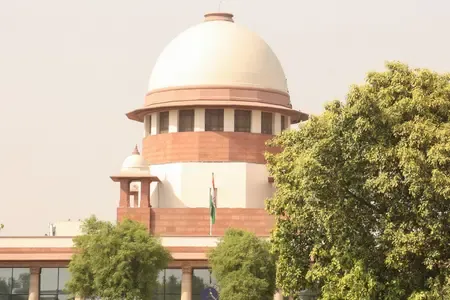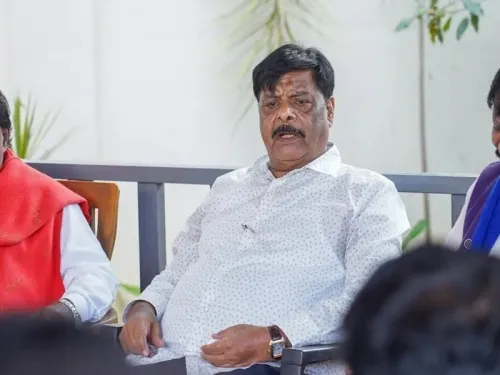Are High Court Judges Taking Unnecessary Breaks for Lunch and Coffee?

Synopsis
Key Takeaways
- The Supreme Court is concerned about the work habits of certain High Court judges.
- Many judges are accused of taking unnecessary breaks.
- Delays in judgment delivery are affecting public trust.
- Performance audits for judges are being proposed.
- Mandatory guidelines are needed to uphold justice.
New Delhi, May 14 (NationPress) The Supreme Court made pointed remarks regarding the work habits of certain High Court judges, indicating that many indulge in unnecessary breaks under the guise of lunch and coffee.
This observation emerged during the hearing of a petition by four individuals from Jharkhand who are currently serving life sentences.
A division bench comprising Justice Surya Kant and Justice N. Kotiswar Singh expressed their worries about the extended delays in issuing judgments even after the conclusion of hearings in numerous High Court matters.
The bench stated that it is crucial to evaluate the performance of judges.
“While some judges are diligent, others frequently take breaks that could be avoided—sometimes for coffee, sometimes for lunch, and occasionally for other reasons,” the bench noted.
“Why can't they continue working at least until lunch? We have received countless complaints concerning High Court judges. This matter requires urgent attention. It is vital to understand how we are performing and our judicial output. The time has arrived to assess judges' performance,” they added.
The petitioners, who are part of Scheduled Tribes and Other Backward Classes, approached the Supreme Court claiming that despite the conclusion of hearings in their criminal appeals at the High Court, the verdicts had been held for two to three years.
The Supreme Court remarked that such delays underscore the necessity for clear guidelines to maintain public trust in the judicial system and to ensure that both convicts and undertrials do not feel deprived of justice.
“Such petitions should not recur. It is essential to have mandatory guidelines to protect the integrity of the system,” the bench emphasized.
However, during the previous hearing on May 5, the Supreme Court was informed that judgments in all four cases had now been rendered. Appeals were successful in three instances, while the fourth was assigned to another bench due to a split decision.
Previously, the Supreme Court had requested information from all High Courts regarding cases where hearings were completed but verdicts were still pending as of January 31, 2025.
On May 9, it further instructed High Courts to notify when judgments in such cases were issued and when they were made available on their websites.
The next hearing in this matter is set for July, with Advocate Fauzia Shakil representing the petitioners.









